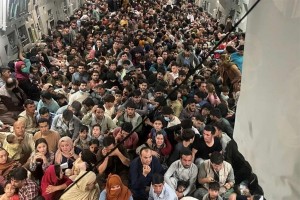 Brevi estratti da un articolo pubblicato ieri dal New York Times:
Brevi estratti da un articolo pubblicato ieri dal New York Times:
(…) “The business of intelligence is not to say you know on Aug. 15 the Afghan government’s going to fall,” said Timothy S. Bergreen, a former staff director for the House Intelligence Committee. “But what everybody knew is that without the stiffening of the international forces and specifically our forces, the Afghans were incapable of defending or governing themselves.” (…)
Sharp disagreements have also persisted in the intelligence community. The C.I.A. for years has been pessimistic about the training of the Afghan security forces. But the Defense Intelligence Agency and other intelligence shops within the Pentagon delivered more optimistic assessments about the Afghans’ preparedness, according to current and former officials.
Military and intelligence assessments predicting that the government in Kabul could hold on at least a year before a Taliban takeover were built on a premise that proved to be flawed: that the Afghan army would put up a fight.
“Most of the U.S. assessments inside and outside the U.S. government had focused on how well the Afghan security forces would fare in a fight with the Taliban. In reality, they never really fought” during the Taliban blitz across the country, said Seth G. Jones, an Afghanistan expert at the Center for Strategic and International Studies in Washington.
Two decades ago, this dynamic played out in reverse. When U.S.-backed Afghan militias began capturing territory from the Taliban in late 2001, Taliban fighters folded relatively quickly, and both Kabul and Kandahar fell before the end of that year.
Some Taliban surrendered, some switched sides, and far larger numbers simply melted into the population to begin planning what would become a 20-year insurgency.
Intelligence officials have long observed that Afghans make cold calculations about who is likely to prevail in a conflict and back the winning side, a tactic that allows for battlefield gains to accumulate quickly until a tipping point turns the fight into a rout, according to current and former analysts.
At the core of the American loss in Afghanistan was the inability to build a security force that could stand on its own, but that error was compounded by Washington’s failure to listen to those raising questions about the Afghan military.
Part of the problem, according to former officials, is that the can-do attitude of the military frequently got in the way of candid accurate assessments of how the Afghan security forces were doing. Though no one was blind to desertions or battlefield losses, American commanders given the task of training the Afghan military were reluctant to admit their efforts were failing. Even those in the military skeptical of the skills of the Afghan security forces believed they would continue to fight for a time after the Americans left. (…)“For the last two or three years I have been ruefully remarking that A.N.S.F. is Afghan for ARVN,” said Mr. Bergreen, who worked on intelligence matters on Capitol Hill from 2003 to 2021. “There was an acknowledgment that the Afghan forces were not up to the long-term fight. But I don’t think anyone expected them to melt away quite that fast.”
Recent Taliban diplomatic maneuvers with other countries in the region, most notably China, lent an air of inevitability to a Taliban takeover that further demoralized Afghan government troops, Mr. Jones said.
In the end, analysts said, the Taliban won with the strategy that has so often proved successful during Afghanistan’s many decades of war — they outlasted their opponent.
“I am not that surprised it was as fast and sweeping as it was,” said Lisa Maddox, a former C.I.A. analyst. “The Taliban certainly has shown their ability to persevere, hunker down and come back even after they have been beaten back. And you have a population that is so tired and weary of conflict that they are going to flip and support the winning side so they can survive.”


